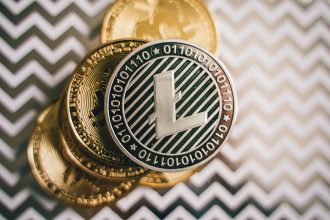runescape-virtual-assets-real-value
Runescape’s Virtual Gold: More Than Just In-Game Currency
In the ever-evolving landscape of online gaming, the concept of virtual assets has become a significant area of discussion. Many games feature in-game currencies, often used for cosmetic items or minor gameplay advantages. However, a deeper dive into titles like Runescape reveals a fascinating evolution where these virtual currencies have transcended their initial purpose, blurring the lines between in-game economies and real-world value. This exploration delves into how Runescape’s in-game gold has developed a unique standing and what that signifies for players and the broader gaming industry.
## The Genesis of Runescape Gold
When Runescape first launched, its in-game currency, affectionately known as “gold” or “gp,” was intended solely for transactions within the game world of Gielinor. Players earned it by completing quests, defeating monsters, and engaging in various skills like mining, fishing, and woodcutting. This gold was then used to purchase essential gear, supplies, and even property within the game.
### From Digital Tokens to Tangible Worth
The shift in perception and utility of Runescape’s gold began subtly. As the player base grew and the game matured, a robust player-driven economy emerged. This economy wasn’t just about acquiring better gear; it became a complex system of supply and demand, driven by player actions and needs.
#### The Rise of Player-Driven Commerce
* **Trading Posts and Grand Exchange:** Runescape introduced systems like the Grand Exchange, a centralized marketplace that facilitated player-to-player trading. This made it easier to buy and sell items, further solidifying the importance of gold as a medium of exchange.
* **Item Scarcity and Desirability:** Rare items, powerful equipment, and cosmetic enhancements became highly sought after. The gold required to obtain these items often represented significant in-game effort, creating a tangible sense of achievement tied to wealth accumulation.
* **The “Grind” and its Valuation:** The time and effort invested in acquiring gold became a significant factor. For many players, the “grind” for gold was not just a means to an end, but a core part of the Runescape experience, leading to a perceived real-world value associated with their virtual earnings.
## Real-World Implications of Virtual Wealth
The discussion around Runescape’s gold often touches upon its perceived real-world value. While not officially sanctioned for direct real-money trading by the developers, the existence of third-party sites and the sheer volume of gold exchanged have led to a de facto market.
### Understanding the Value Proposition
1. **Time as a Commodity:** Players often equate the hours spent earning gold with a real-world monetary value. If an hour of work outside the game earns a certain amount, then an hour spent “grinding” in Runescape can be seen as having a comparable, albeit virtual, earning potential.
2. **Third-Party Markets:** Despite developer policies, third-party websites emerged that facilitated the buying and selling of Runescape gold for real money. This created a grey market where virtual wealth could be converted into tangible currency, further cementing its perceived value.
3. **The “Gold Farmer” Phenomenon:** In many MMOs, including Runescape historically, “gold farmers” emerged – players who dedicate significant time to earning in-game currency with the intention of selling it for real money. This phenomenon highlights the economic incentives that can arise from well-designed virtual economies.
### The Developer’s Stance and Player Protection
Jagex, the developer of Runescape, has historically taken a firm stance against real-money trading (RMT) to protect the integrity of the game’s economy and prevent scams. Their efforts focus on:
* **Enforcing Terms of Service:** Actively banning accounts involved in RMT.
* **Promoting In-Game Commerce:** Encouraging players to trade and interact within the game’s official systems.
* **Educating Players:** Warning users about the risks associated with third-party sites, such as scams, account theft, and potential game bans.
## The Future of Virtual Economies in Gaming
Runescape’s journey with its in-game gold offers a compelling case study for the evolution of virtual economies. It demonstrates how player-driven systems, combined with the inherent value players place on their time and achievements, can create complex economic landscapes within digital worlds.
As games continue to push the boundaries of immersion and player interaction, the concept of virtual assets and their perceived real-world value will likely remain a key area of development and discussion. Understanding these dynamics is crucial for both players seeking to maximize their enjoyment and developers aiming to build sustainable and engaging virtual worlds.
© 2025 thebossmind.com
Featured image provided by Pexels — photo by HANUMAN PHOTO STUDIO🏕️📸








